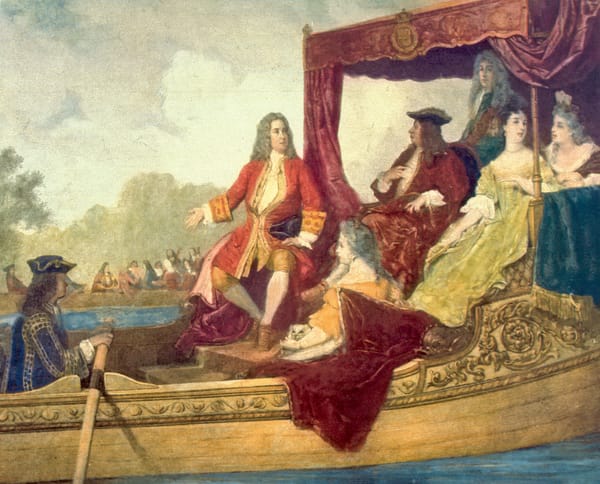Classical music rocks

Hailed as “the greatest guitarist of all time” and “a guitarist’s guitarist”, English rock legend Jeff (Geoffrey Arnold) Beck passed away on 10 January 2023 aged 78, of bacterial meningitis.
A flurry of tribute articles followed in the wake of his death. I was pleasantly surprised to learn from some of them that Beck was deeply influenced by western classical music.
Beck’s early exposure to the genre probably began in the church choir, in which he sang as a ten-year old.
The fact that Beck credited fellow rock guitar legend John McLaughlin as one of his major influence tells us a lot. In an interview with ‘Uncut’ magazine in 2010, he had said McLaughlin “has given us so many different facets of the guitar and introduced thousands of us to world music, by blending Indian music with jazz and classical. I’d say he was the best guitarist alive.”
McLaughlin himself was born into a family of musicians, (his mother was a concert violinist) and studied violin and piano before he took up the guitar, which undoubtedly gave much breadth to his own musical exposure and was reflected in his musical output.
As early as 1966, Beck, barely in his early twenties, recorded a rock instrumental track that he called ‘Beck’s Bolero’. That it was his first solo recording and that he should choose to devote it to a classically-inspired work says a lot about the how much he valued his debt to classical music. His influence here, as you may have guessed, was Maurice Ravel’s famous ‘Bolero’, which builds on a persistent, repeating motif supported by a snare drum, re-creating the Spanish ‘bolero’ dance pattern for full orchestra. Beck’s Bolero has the same ostinato rhythm. It has been described as “one of the great rock instrumentals, epic in scope, harmonically and rhythmically ambitious yet infused with primal energy.”
It is also worth noting that the group of musicians brought together for the recording session (Jimmy Page, Keith Moon, John Paul Jones, Nicky Hopkins) was later acknowledged by the musicians themselves as the “first attempt” at what would eventually become the now iconic English rock band Led Zeppelin, two years later. Apparently the famous quip was made about the track, “Yeah, it’ll go down like a lead zeppelin”, which Page later used, with a slight spelling change, for his new group.
‘Beck’s Bolero’ received even greater exposure on his debut album Truth in the latter part of 1968. It remained one of Beck’s favourite pieces and he performed it numerous times, often as his opening number. He was particularly proud of the “hard-rock” break almost exactly in the middle which contained, according to him, “the first heavy metal riff ever written and I wrote it.” The authorship of the track was disputed after its success, with both Beck and Page claiming credit, although each acknowledged the contribution of the other. The official credit still goes to Page, despite the title suggesting it was ‘Beck’s’.
A much later, more recent album, ‘Emotion and Commotion’ (2010) has two tracks that have a classical music background: Beck’s takes on the much-loved aria ‘Nessun Dorma’ (Let no one sleep) from the final act of Italian composer Giacomo Puccini’s opera Turandot; and ‘Corpus Christi Carol.’
‘Nessun Dorna’ had achieved pop status after the late Italian operatic tenor Luciano Pavarotti’s 1972 recording of it was used as the theme song of BBC television’s coverage of the 1990 FIFA World Cup in Italy.
In Back’ version, his electric guitar (backed by a 64-piece orchestra for this track and for ‘Corpus Christi’) takes the place of the human voice. It won the Grammy Award for Best Pop Instrumental Performance the following year. Have a listen to the track, and you’ll hear why. The guitar really sings. I dare you not to be blown away when he ‘sings’ the final ‘lines’ of the aria, “All’alba vincero, Vincero, Vince-e-ero!!!” (At dawn, I’ll win!).
Beck’s album notes credit the British composer Benjamin Britten (1913-1976) for the Corpus Christi Carol, but it has a much older vintage. It is a Middle or Early Modern English hymn (or carol), first written down by an apprentice grocer named Richard Hill between 1504 and 1536, but the original composer remains anonymous.
The text of the carol is believed to be allegorical with many different interpretations ranging from references to the Holy Grail, to the crucified Christ (“the bleeding knight”) or even (of interest to those of you, who like me, are hooked on ‘The Tudors’ television series) contemporary English history (the “falcon” possibly meaning the heraldic badge of Anne Boleyn, who displaced Queen Catherine of Aragon in the affections of King Henry VIII).
This is a great example of a creative cascade, something I love to read about. This sixteenth-century carol was set by Britten for voice and piano in 1961. English mezzo-soprano Dame Janet Baker recorded Britten’s arrangement for high voice on her 1967 album “A Pageant of English Song: 1597-1961” with pianist Gerald Moore.
Almost three decades later, singer-songwriter Jeff Buckley, inspired by Baker’s version, included his interpretation on his debut 1994 album, ‘Grace’. He said, “The ‘Carol’ is a fairytale about a falcon who takes the beloved of the singer to an orchard. The singer goes looking for her and arrives at a chamber where his beloved lies next to a bleeding knight and a tomb with Christ’s body in it.”
Beck in turn, was inspired by Buckley’s version: “The simplicity and the beauty of the way he sounded amazed me.”
Those same words, “simplicity” and “beauty” could also describe Beck’s soulful playing. There’s no gimmickry here, just the right amount of vibrato to give the colour to the melodic line. I don’t know whether Beck was religious (probably not, not in the conventional sense of the word), but I can hear true reverence in this track.
Jimmy Page, paid tribute to Beck as “the six-stringed warrior” and praised his “apparently limitless” musical imagination which could “channel music from the ethereal”.
The three tracks I’ve discussed above might not be representative of Beck’s larger oeuvre, but you do get a sense of what Page meant in his tribute.
This article first appeared in The Navhind Times, Goa, India.





